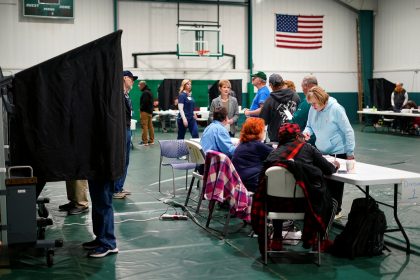Hospitals: As We Fight COVID-19, Drop the Lawsuits Stop Suing the Government, Taxpayers, and Patients
COMMENTARY

A recent survey found 91 percent of Americans want healthcare price transparency – and support that hospitals and healthcare facilities be required to publicly disclose the prices of their services.
Hospitals – which, in the midst of the COVID-19 pandemic, have already received more than $100 billion in stimulus funds – do not want to comply with any transparency rules. In fact, when the Trump administration announced that it would be requiring hospitals to reveal their negotiated rates by January 2021, hospitals responded with a lawsuit.
The American Hospital Association and its allies went as far as to argue that being required to disclose their private negotiations with insurers is a violation of their First Amendment Rights.
As lawmakers discuss the next round of stimulus funding, hospitals are back in line with their hands out – seeking another $75 billion more of taxpayer money.
Here’s a thought: Hospitals should stop suing the government – and, thereby, American taxpayers. Instead, these entities should step up to the plate and post real cash prices, as well as negotiated rates, online.
This transparency would support greater accountability, enhance patient care, and cut waste.
In the last four weeks, 22 million Americans have filed for unemployment benefits.
Hardworking taxpayers – perhaps now more than ever – need hospitals to behave like the compassionate, ethical institutions they profess to be. As the coronavirus pandemic ravages families and industries alike, it is time for hospitals to drop the lawsuit against the same government that is bailing them out.
Furthermore, they should put a moratorium on medical collections.
Our nation’s leaders must mitigate the cost of this virus. It is the consumers of healthcare – patients, American taxpayers, workers, and businesses – who pay for coverage and treatment. When armed with real prices, consumers are empowered to smartly shop for the best quality care at the lowest possible price.
Ultimately, Americans trust that this transparency – which would allow them to shop in a competitive market – will drive down the cost of care.
Sans transparency, price-gouging, overcharging, waste, and even fraud will run rampant. Along with mitigating cost, transparency will also help restore trust in the U.S. healthcare system.
According to a pre-coronavirus survey, 64 percent of Americans have avoided getting needed medical care because they were afraid of the unknown cost. One in five Americans has medical debt in collections, and one-third has debt due to medical expenses.
Why is the physical and financial health of Americans on the line, while the healthcare industry thrives?
In addition to receiving a $100 billion bailout, nearly two-thirds of our nation’s hospitals don’t pay any taxes. In exchange for paying zero income, property, or sales tax, these “nonprofits” are supposed to provide charitable care to the sick and poor.
Instead, hospitals sue low-income patients for medical debt, garnish the wages of persons living paycheck to paycheck, and even put liens on personal property.
Mary Washington Hospital in Virginia garnished the wages of more than 1,500 low-income patients last year alone. Over a period of just five years, Methodist Le Bonheur Healthcare, a nonprofit healthcare system in Memphis, filed more than 8,300 lawsuits against its poor patients for unpaid medical bills. Coffeyville Regional Medical Center, a nonprofit hospital in rural Kansas, went as far as to sue patients for not paying their bills, which resulted in jail time for some patients.
Even John Hopkins University, an institution well respected for innovation and coronavirus tracking, was egregiously suing patients.
Adding insult to injury, nonprofit hospitals likely pay their attorneys – prominent law firms paid hefty sums to chase down unpaid debt from vulnerable persons – with the taxpayer dollars that keep their doors open. Patients, in turn, are at times paying the legal fees of the lawyers they are forced to go up against in court.
As the economy struggles under the weight of a life-threatening virus, and as Americans fight for their health and the health of their loved ones, it is time for the hospital industry to redirect its energies and resources toward combating this national crisis, rather than adding to it.
—
Cynthia A. Fisher is a life sciences entrepreneur, Founder & Chairman of PatientRightsAdvocate.org, and the founder and former CEO of ViaCord, Inc.
























